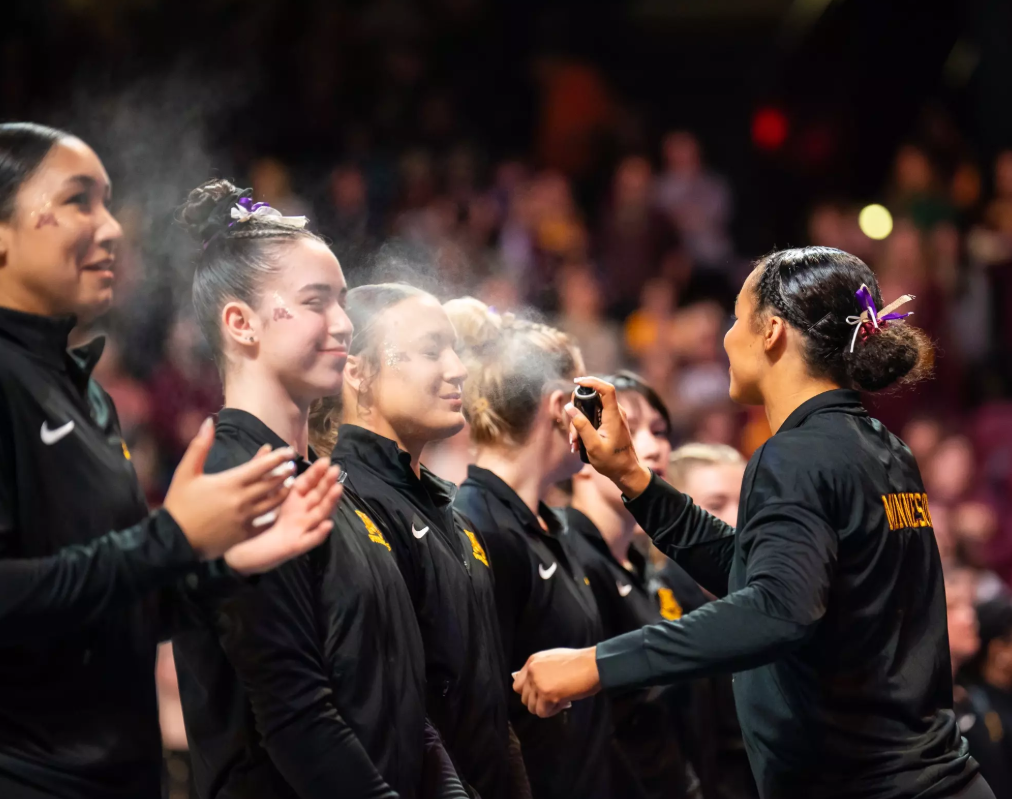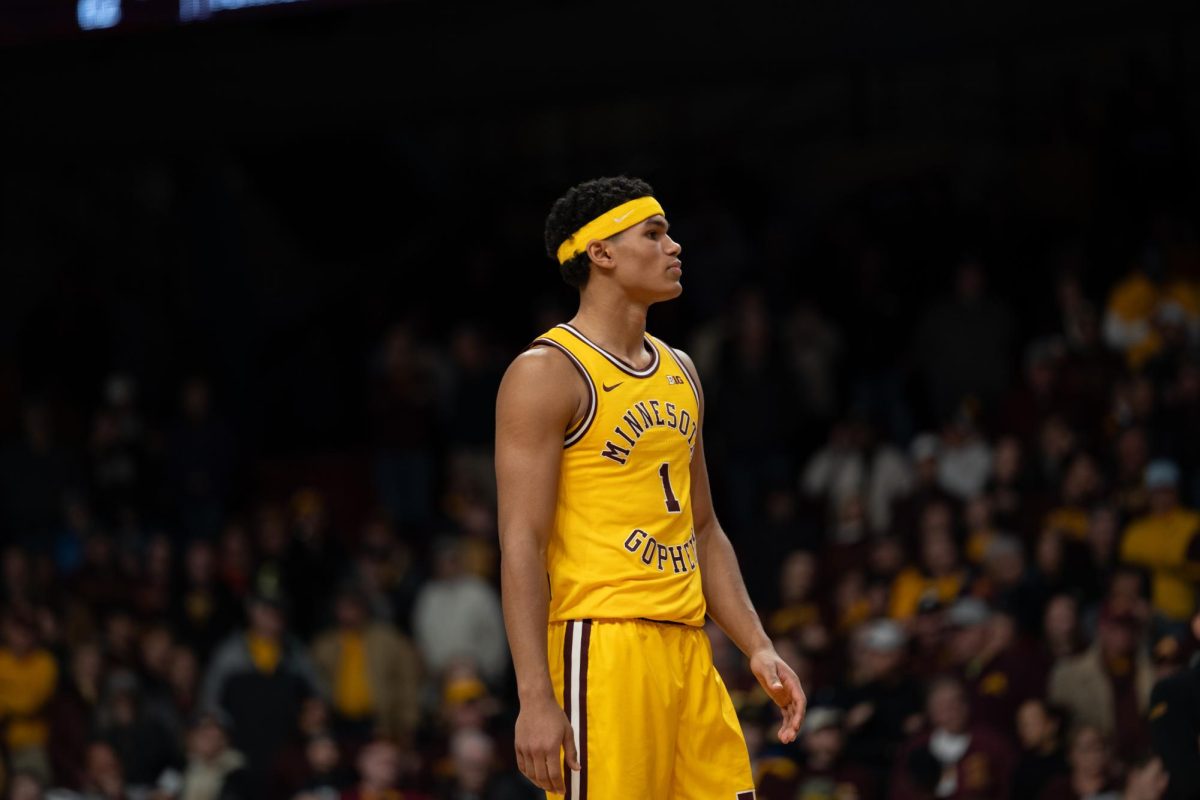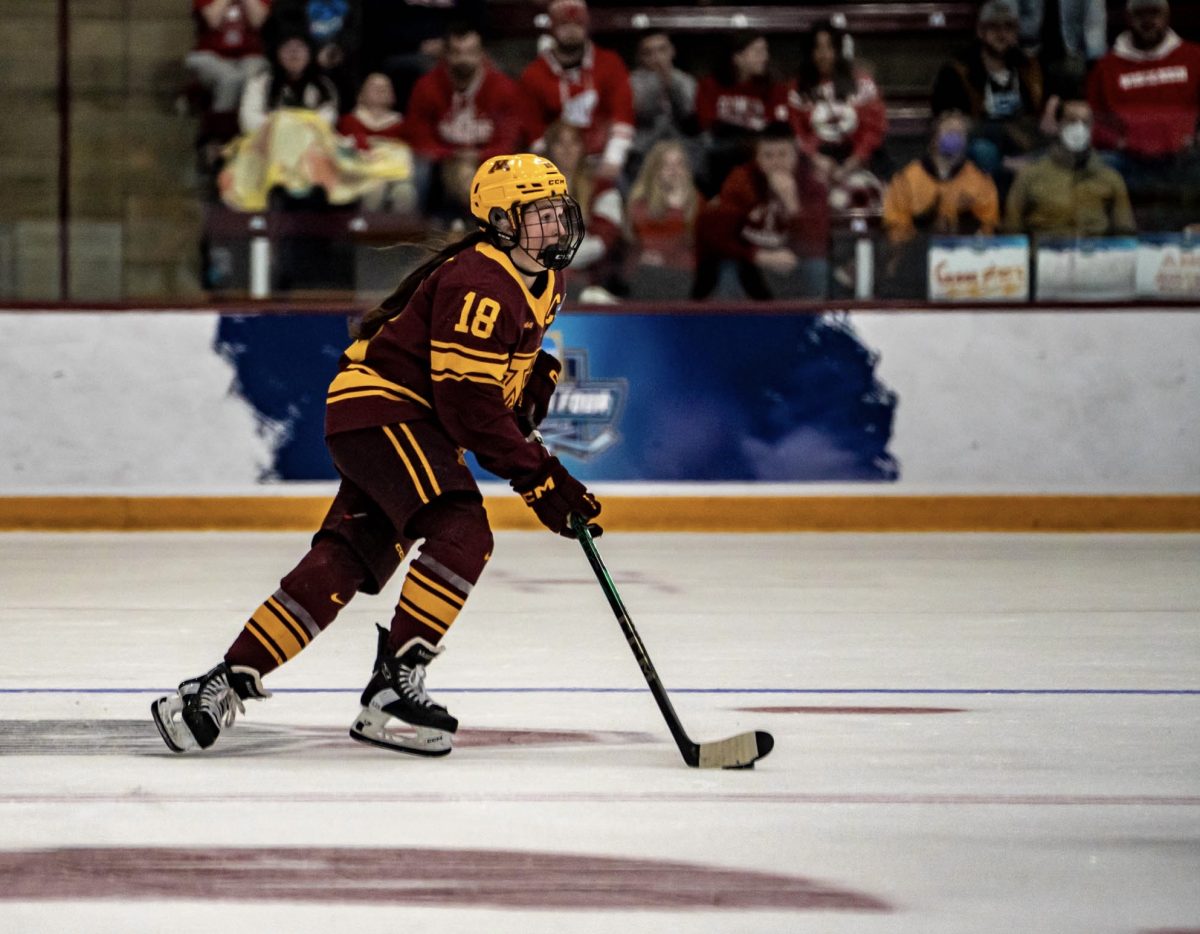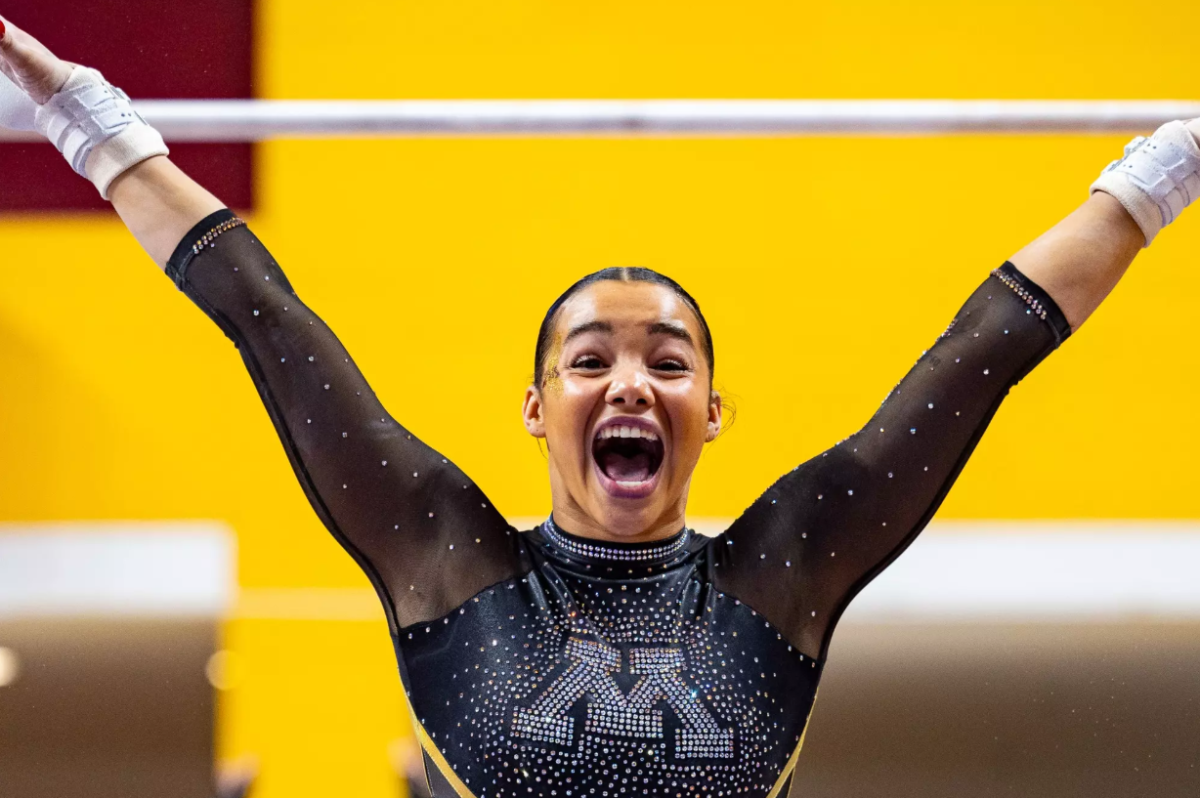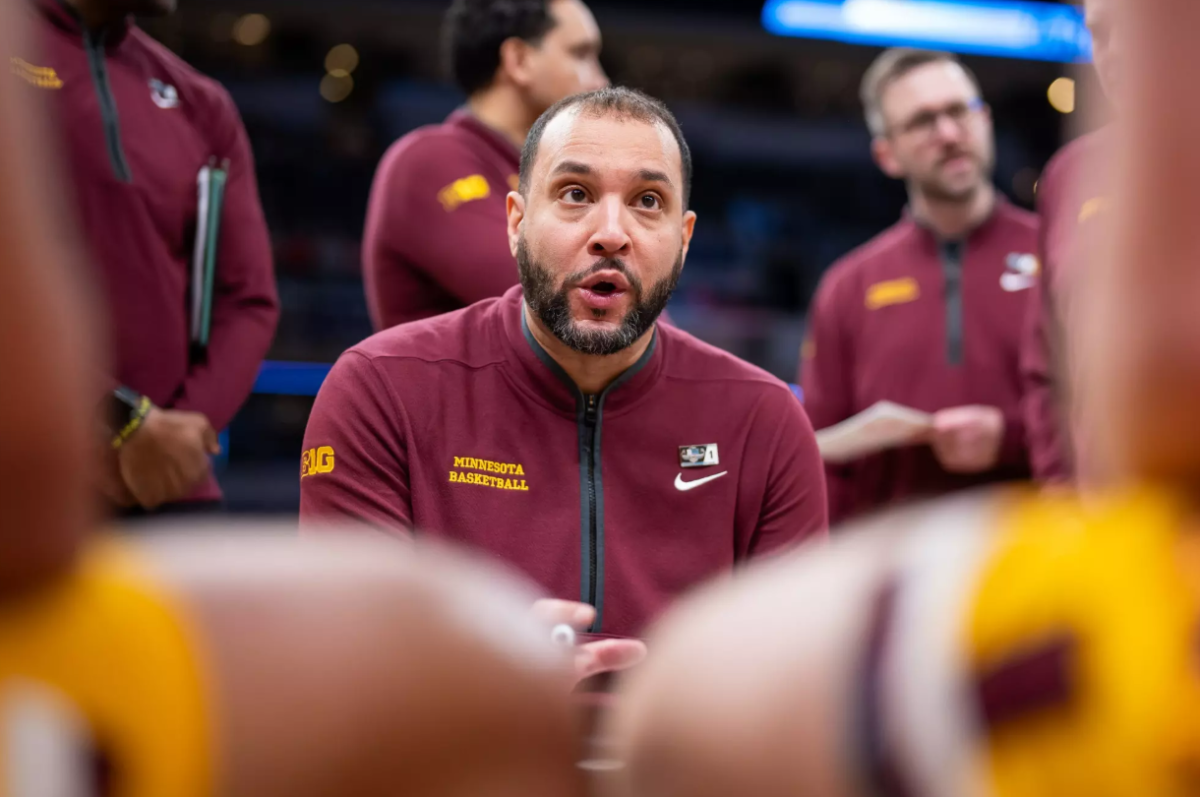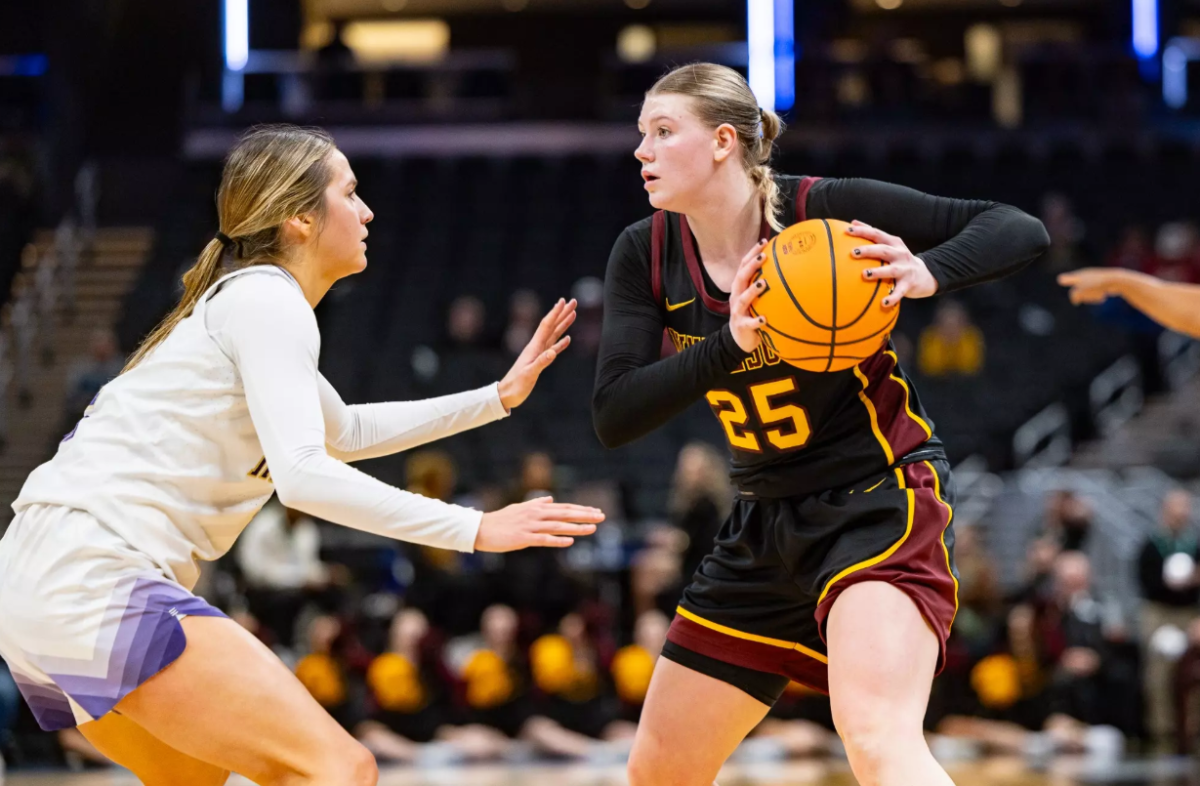A proposal to allow unlimited meals and snacks for student-athletes appears to have widespread support, including the backing of three former Gophers football players.
The NCAA Division I Legislative Council last Tuesday approved the measure, which aims to help Division I student-athletes meet their nutritional needs. The association’s leadership could make the measure official this week.
Current NCAA rules allow schools to provide three meals per day, nutritional supplements and snacks to student-athletes.
“The details surrounding the food legislation that the NCAA had in place were very cumbersome,” Gophers Director of Athletic Medicine Moira Novak said.
If the NCAA Division I Board of Directors passes the proposal at its meeting Thursday, the new rules will take effect Aug. 1.
“I think it’s a great thing that they’re doing this,” former Gophers offensive lineman Zach Mottla said. “I think it’s a good first step in the direction that the NCAA needs to go.”
Mottla’s former teammates — linebacker Mike Rallis and fullback Mike Henry — seemed to agree.
“Whether you believe that [athletes] shouldn’t be paid or whether you think they should get paid thousands of dollars, I think everyone should be able to agree that they should be fed a well-balanced diet,” Rallis said.
University of Minnesota athletics department officials declined to comment for this story.
NCAA President Mark Emmert praised the proposal during an appearance on ESPN’s “Mike & Mike” show last week.
The NCAA council’s proposal moved forward in the wake of highly publicized comments by University of Connecticut basketball star Shabazz Napier, who said student-athletes sometimes have “hungry nights.”
Emmert said there was no correlation between Napier’s comments and the proposal, noting that it had been in the works for a while.
The council brought up two food-related proposals in October — one that restricted unlimited meals to when student-athletes were in season and another that allowed them year-round. The council approved the latter proposal.
Jeff Bolin, an associate vice president for research at Purdue University and the Big Ten’s Legislative Council representative, said the conference favored the first proposal, but he noted that the council also supported the more liberal approach.
Bolin said Big Ten representatives go into NCAA meetings “knowing what the conference institutions want, but with the opportunity to vote as we feel appropriate.”
“Relaxing the rules on this is something that I favored,” he said.
Supplemental nutrition
A rationale attached to the proposal noted that the supplemental meals aren’t intended to replace a meal plan or an off-campus board stipend. Instead, they’re meant to meet student-athletes’ additional nutritional needs.
Notably, the proposal does not change the NCAA rule on training table meals. NCAA spokeswoman Michelle Brutlag Hosick said in an email that training table meals are generally considered “enhanced meals designed to replace breakfast, lunch or dinner.”
The NCAA allows schools to provide one of those meals per day. They are covered under athletic scholarships, but walk-on athletes have to pay for them.
Henry — a walk-on during the first two years of his collegiate career — estimated that Minnesota’s training table meals cost between $8 and $10. He said they were worth the cost because the team served food from top places around the city.
“They treat you like kings there,” he said. “There was always food available, because nothing was worse [than] going to practice when you’re hungry or starving.”
Recruiting concerns
The NCAA stressed that the proposal wasn’t designed to give certain teams a financial advantage. Still, some are concerned it could impact recruiting efforts.
Perry Leo, director of the University’s Aerospace Engineering and Mechanics Department and an NCAA faculty representative for Minnesota, said the proposal could exacerbate the difference between schools that have a lot of money and schools that don’t.
Still, he said he doesn’t think this proposal will change many of the University’s practices.
“I think that we feed the kids what we can feed them; we provide snacks when we can provide snacks, and I just don’t see that we’re going to go overboard,” he said. “There may be a few more things provided — a little bit more food provided — but I don’t think they’re going to want to make it a major part of who we are.”


